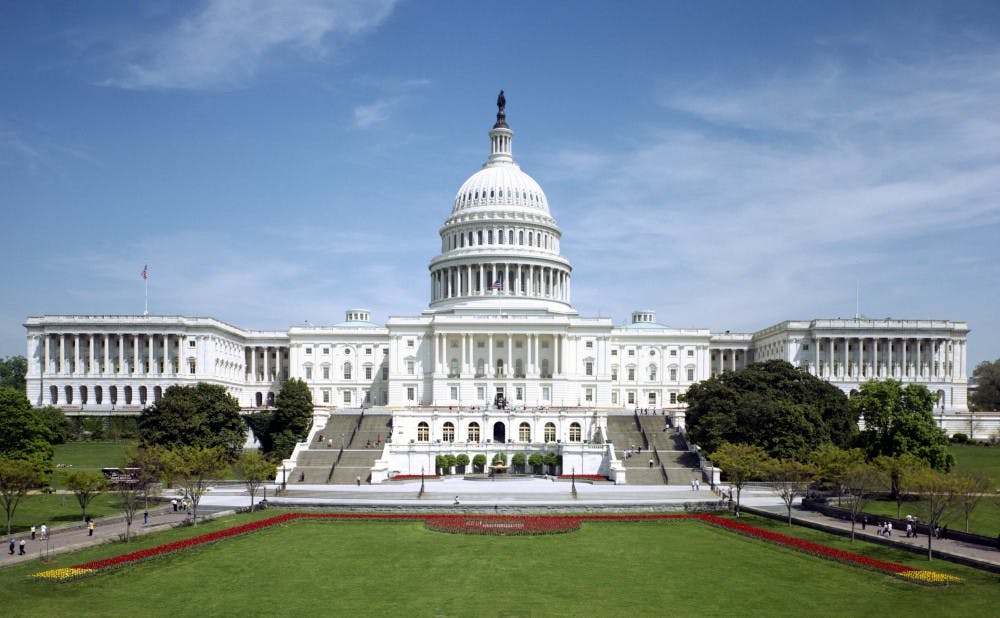Less than 24 hours after a whirlwind election night, some of Duke's political experts gathered to discuss the results.
The midterm election saw Republicans expanding their control of the Senate and the Democrats retaking the majority in the House of Representatives. At the event—hosted by Duke's Center for Political Leadership, Innovation and Service —Duke professors said the results are mixed and complex.
"[Last night's elections] showed the highest levels of interest in a midterm on both sides," said Fritz Mayer, professor of in the Sanford School of Public Policy.
According to a New York Times analysis, 317 congressional districts moved to the left of where they were in 2016, but only 30 of those districts actually flipped from Republican to Democratic. That shift was concentrated in suburban areas.
The overall wave, however, was smaller than the 2006 one that flipped the House from Republicans to Democrats and half the size of the 2010 red wave in which Republicans took the House, according to the Times' analysis.
Professors on the panel agreed that the results of the election indicate a balance is starting to return to Congress but has not returned to its historical level.
"The playing field was made more level last night," said Mac McCorkle, professor of the practice in the Sanford School of Public Policy, who was on the panel.
McCorkle also expressed disdain for some of the constitutional amendments passed in North Carolina, claiming lowering the income tax cap to seven percent is "not good public policy."
Panelist Ashley Jardina, assistant professor of of political science, noted that almost every district in the country has moved left but only to a limited extent.
"So if you want to think of it as a blue wave in that respect then yes, every district moved more to the left," Jardina said. "But, on the other hand, it’s not the case that the country has moved as far left as it has in the past."
Gunther Peck, an associate professor of history who teaches a course on immigration history, explained that the immigration issue has initiated hot debates and a discussion over fairness in the country that will influence future elections.
"[The immigration issue] was driving a lot of people to the polls, and it’s going to continue to drive voters even more so in the next election cycle because we have all of these issues coming up," he said.
Peck added that Trump's remarks on immigrants reflected a nativism that existed in the American society before his presidency.
"There’s definitely nothing new, in a way, in what the president was doing with immigration. I think too many people talk about it as unprecedented," he said. "Though it is important to hold out that this is the most nativist, nakedly sometimes racist appeal to voters, that I’ve seen in my lifetime."
Get The Chronicle straight to your inbox
Signup for our weekly newsletter. Cancel at any time.

